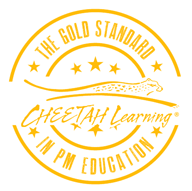Here is this month’s Know How Network article,
Getting New Projects Off the Ground – Fast – With Kanban Boards
If you plan to use it, please identify it as being part of the Know How Network, identify Michelle LaBrosse, PMP®, as the author, and include a link to us at www.cheetahlearning.com when you publish it. Should you need to modify the article in any way to fit your medium, please obtain approval from Cheetah by e-mailing your version to marketing@cheetahlearning.com before it is published.
January Know How Network (Microsoft Word Format)
January Know How Network (Adobe PDF Format)
January 2019
Getting New Projects Off the Ground – Fast – With Kanban Boards
By Michelle LaBrosse, CCPM, PMP, PMI-ACP, RYT
During my Christmas break, I took a hobby into the business realm and started the Alaska Spice Shop. Getting this new business up and running used every tool in Cheetah Learning Project Management toolbox – the most important of which was our Kanban Board.
What is a Kanban Board? A Kanban Board is a fancy name for a relatively simple tool: a physical or digital “board” that allows to visualize all of your project tasks in one space. At its simplest, Kanban boards organize your tasks by their current stage of completeness. Our board, for example, has columns for “work to be completed”, “work in progress”, and “work completed”. From there, boards can become more elaborate – specifying who is responsible for what task, for example, and differently prioritizing tasks based on their delivery date.
By showing all of your project tasks in one place, Kanban Boards give you a sense of how much work there is left to complete, how many more tasks you can realistically take on, and increase the efficiency of communication among team members working on the project.
Why a Kanban Board? Kanban boards are adaptable to just about any project because they have only two rules: all tasks for the project must be on the board, and “work in progress” is limited to what fits on the board. If there are too many items in “work in progress,” the team needs to pick up the pace to complete these before new items from “work to be completed” can be started.
Sticking to the limits on how many tasks can be “work in progress” was key to launching the Alaska Spice Shop. For our Kanban Board, we kept it simple. We used sticky notes to build our board – a quick, easy solution that clearly shows when the “work in progress” column is full.
To develop your own Kanban Board, start by asking yourself: can I clearly define the scope of my project? Can I specify the smaller tasks that make up this project? Can I name the team members who will be helping with this project, and assign them specific tasks? Then, decide what kind of board would be best suited to your project. Do all your team members share an office? Or are you spread across multiple locations, making a digital board a better choice for this project? Do you need a board that also allows for comments and conversations on project tasks, to facilitate collaborations among team members? Your board can become as complex as your project needs it to be.
Starting from a simple board, the Alaska Spice Shop has taken off – fast. We already, in our first month went to our first trade show, secured ten retail clients, and won a blind taste test for a large tourist resort. The only way we could have pulled this all off was with the techniques we teach in Cheetah Learning. Learn more about Cheetah Learning’s online and in-person courses in Project Management at www.cheetahlearning.com



 Michelle LaBrosse, PMP, is an entrepreneurial powerhouse with a penchant for making success easy, fun, and fast. She is the founder of
Michelle LaBrosse, PMP, is an entrepreneurial powerhouse with a penchant for making success easy, fun, and fast. She is the founder of 